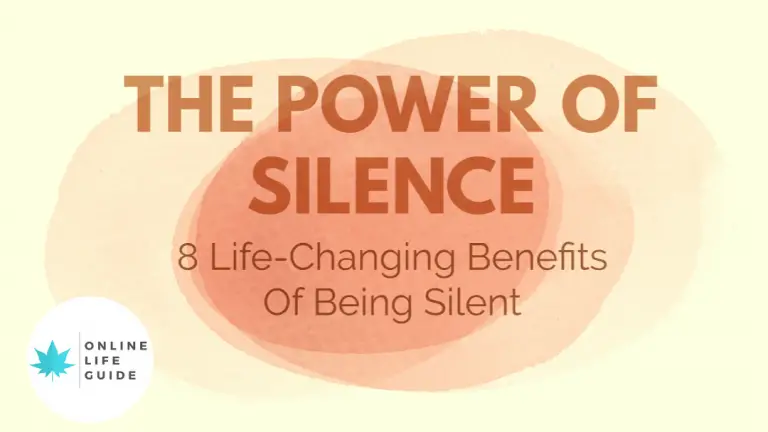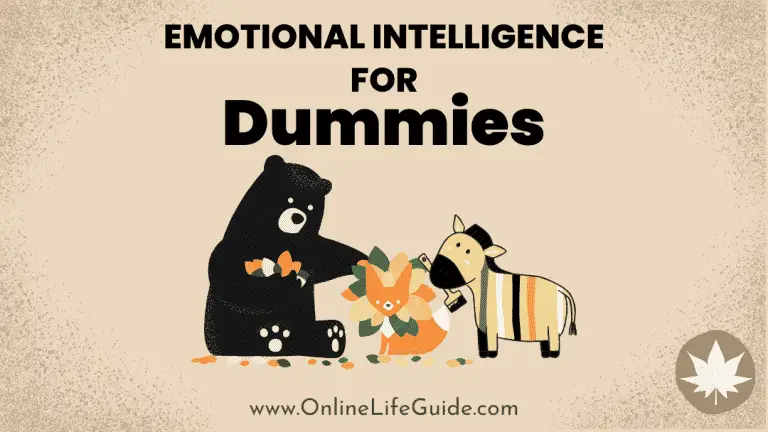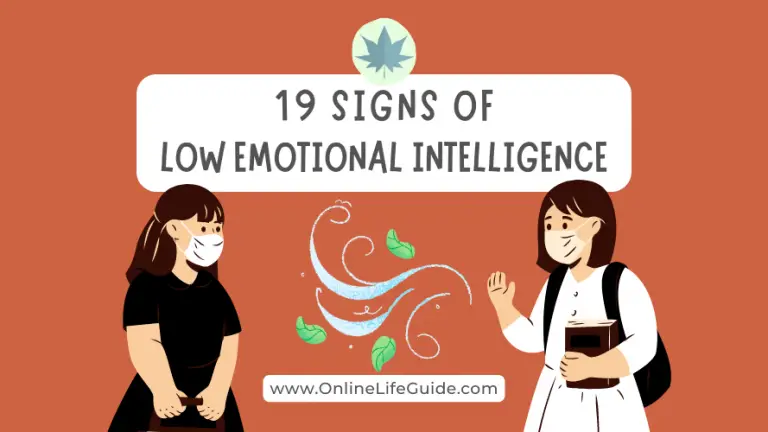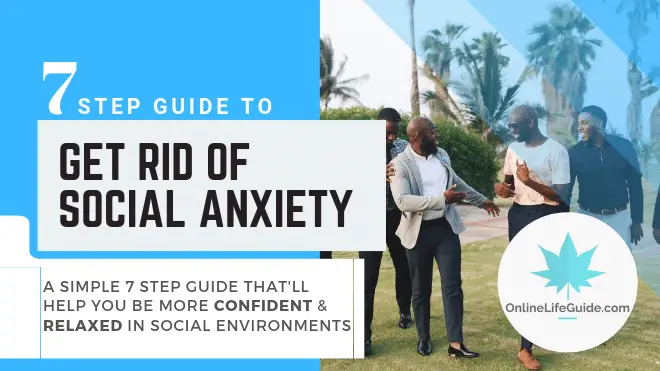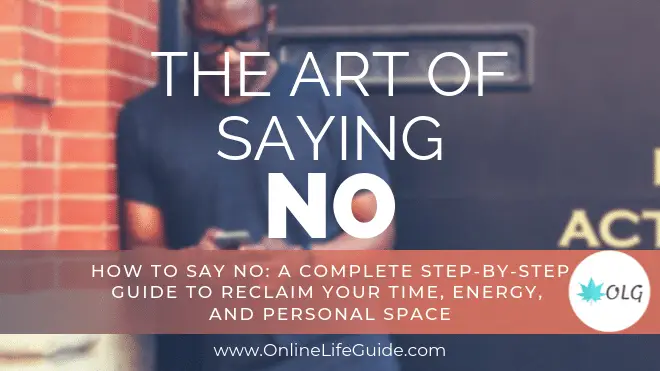8 Step Guide To Become A Better Listener
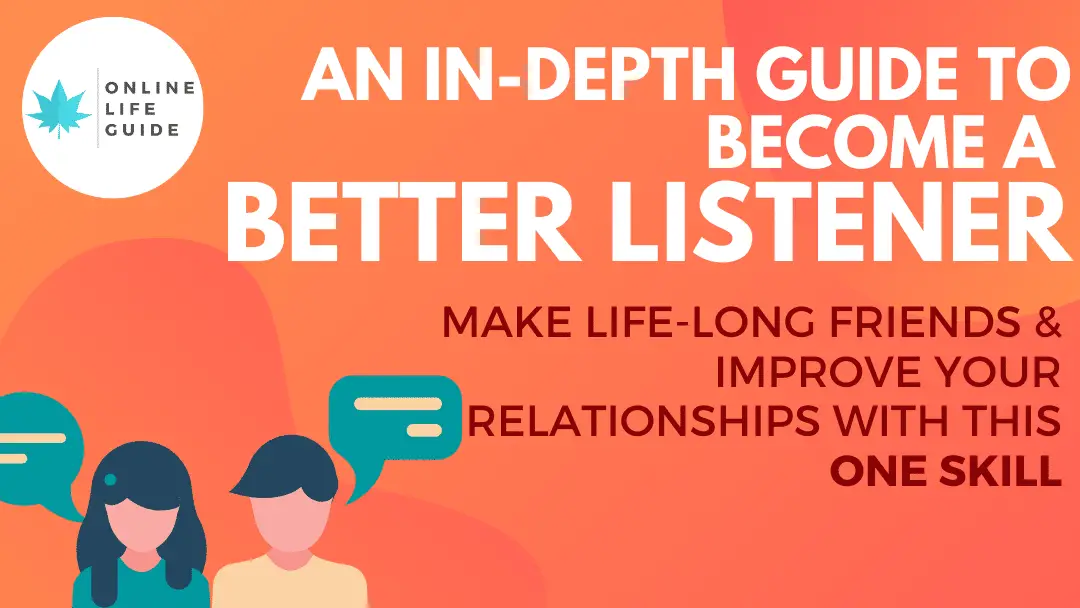
Before we dive right into how you can become a better listener in any relationship and enhance your social skills, let’s look into 3 typical communication scenarios that we usually experience.
Scenario #1
Imagine you are at a gathering where you are talking to Person-A, and you are expressing yourself with all your heart.
You are fully engaged in converting your thoughts into words. Expressing your opinions, sharing your life experiences or maybe you are talking about a topic that interests you.
While you are talking so heartily, you start to notice that Person-A does not seem to be fully engaged with you. He/she does not seem to show much expression as if he/she is bored and keeps looking away, here and there.
Then he/she takes out their phone and starts to scroll through.
You feel quite uncomfortable at that point. You get the message and you cut your conversation short, leaving them be.
Scenario #2
After you left conversing with Person-A, you meet up with Person-B at the same gathering and you find that Person-B shares the same topic of interest as you. So you both start to chat about that.
As you express your views and thoughts regarding that topic, Person-B keeps cutting you off to share their views as they seem to know more about it that you do.
After several instances of you getting cut-off by Person-B, you somewhat feel annoyed and you give up on sharing your views and let them talk.
You stop talking because you want this conversation to be over.
It seems like Person-B doesn’t really understand or respect your perspective, or just doesn’t care what you have to say about the topic as they are too busy sharing their own views.
Soon this one-sided conversation ends.
Scenario #3
Then as you rid yourself off of Person-B, you meet Person-C, who greets you generously. As you both begin to chat, you start sharing your interests and experiences.
Even though Person-C isn’t much aware of your particular area of interest, he expresses curiosity to know about it more, so he asks you questions regarding your experiences and views, and listens to you with full attention and interest.
At certain points during the conversation, he does have different views than you, but he respects your perspective and lets you finish first before he shares his own perspective.
Honestly, you find some of his views make more sense and you are open enough to learn during this conversation.
When you share your success, he enthusiastically appreciates and congratulates you.
When you share your concerns and difficult experiences, he listens with sincerity.
His expressions and emotions are genuine, and you can sense that he is a transparent person.
Finally, after having a healthy, fulfilling conversation, it comes time to leave and you say your goodbyes.
You feel a sense of rapport and genuine respect for Person-C and you eagerly look forward to meeting him again.
Quick Analysis Of These Three Conversations
At some point, you might have actually encountered Person A, B, and C, and can relate to the above-mentioned scenarios.
Considering all the three scenarios, can you think of a time when you felt that you aren’t being heard or what you’re saying does not seem to be important to the other person? When you talked to someone and noticed that they’re not really listening to you?
How did you feel?
Annoyed?
Frustrated?
Ignored?
Underestimated?
Unimportant?
Uncomfortable?
Did you feel that you weren’t treated with enough respect and attention?
And what did you think of the person whom you were having the conversation with?
Did you think of him/her as rude, insincere, careless, arrogant, or felt any form of resentment towards them?
Yep, that’s just to name a few of the emotions and thoughts that usually come up when someone feels they aren’t being listened to. Especially if what they’re trying to communicate holds importance to them.
Now, can you think of a conversation when the person you were talking to focused their full attention towards you? When someone really listened to you with sincerity?
How did you feel then?
A sense of relief?
A sense of connection? Knowing that someone cares about what you have to say.
What kind of image did you develop of that person who paid attention and genuinely listened to you?
Friendly?
Sincere?
Caring?
Positive?
Self-less?
Well-wisher?
Most other people feel a similar way. That is why listening is such an important aspect of any relationship in our lives.
Interestingly most problems in our relationships occur because of the communication gap that is created by the lack of listening.
When someone feels that they are not being listened to and not being understood by the other person, they gradually develop a sense of resentment towards that individual and eventually stop communicating with them.
Because of this absence of proper, thorough communication, a mental distance is created between two people that keep on increasing with time.
It is very important to develop understanding in any relation, whether it be a boss-employee relation or parent-child relation, husband-wife relation or relations with friends.
The sense of deep understanding and connection in our relationships come from proper communication, and a major part of good communication is Good Listening.
What Does It Really Mean To LISTEN?
Have you ever had an experience when someone is not listening to you and out of frustration you said something like:
“Look at me, Listen to me”
“why aren’t you listening to me?”
And they responded with something like:
“I AM Listening to you! I listen with my ears, not my eyes. What else do you want me to do?”
A lot of time we mistake mere ‘hearing’ with ‘listening’. Hearing is simply receiving sound waves going into our ears. No conscious effort on our part.
We hear a lot of things in our surrounding environment. Like the background sounds in our environment (fan, birds, traffic, machines, etc.) but we don’t necessarily pay close attention to them. Hence, technically we are not listening.
Listening is a conscious act where we use our brain to process the information we are hearing, and try to understand and relate to that information.
Types Of Listening
While listening can be divided into many sub-types, for this article we will be dividing it into 2 main types:
Passive Listening
Passive Listening is when we apparently don’t respond much physically to what we are listening. An example can be listening to a lecture or radio.
The thing is, often, we use passive listening while conversing with people where we don’t really respond or express any genuine interest towards what that person is saying.
We might be listening, but not really showing that we’re listening.
The lack of our positive expression causes the other person to think that we aren’t paying attention or don’t care about what they have to say.
This could result in a feeling of resentment and ultimately damage the relationship between the two.
Active Listening
Active Listening, on the other hand, is, well, ACTIVE!
Someone who is actively listening shows genuine interest in the speaker and expresses their natural emotions.
Active listeners don’t sit lifeless like a dummy during a conversation. They fully engage in the conversation with their mind, body, and spirit. They participate without directly interrupting the person speaking.
Active listening is letting the other person know that we are listening to them and really care about what they have to say.
It involves a keen, learning attitude towards the speaking person which involves:
- Being genuinely willing to know more about the topic of discussion.
- Asking questions relevant to the conversation.
- Expressing your interest and attention through your body language by establishing eye contact and nodding your head.
- Expressing your attention verbally by using short words of acknowledgment, like
“I see”, “I understand”, “hmmm”, “that’s right”, “interesting”, “great!” etc.
Active listeners are dynamic, vibrant people, that are full of life. People will love you for genuinely showing interest and actively listening to them.
We live in a world where most people care only about their own personal interests. Where listening to others seem like an enormously difficult task to do (strange isn’t it).
In the midst of all this worldly rat-race, the rare trait of sincere, active-listening tends to shine out above the crowd.
It’s funny how such a simple thing can make a special place for us in people’s hearts, make us great connections and develop strong bonds in our relationships.
Surrounding us with people who will in-turn sincerely care about us, making our experience of life all the more richer. Yet so few of us ever really practice this habit consciously.
Take it as a fundamental socializing skill. The more you do it, the better you’ll get at it.
We’ll discuss some pointers and practices to polish your listening skills and be well on the road to becoming a great communicator and hence develop one more trait of leadership.
Fact: It took me around 3 weeks to complete this article. Every time I would sit to write, I would realize things that I wasn’t practicing myself while listening to other people. So I would stop writing, and go practice myself first what I know and what I’m about to preach. Writing this guide (like several other guides and articles I wrote) was a process of realizations and experimentations.
Some Amazing Impacts Of Active Listening
It is important to understand the sheer benefits of this one skill and how it can impact the quality and experience of your life. So let us briefly look into a few:
Active Listening Will Make Your Social Life A Breeze!
Active Listening will make the other person cool down, resolve your conflicts, make you good friends, and earn you respect.
It’s amazing how such a simple habit can lead to such miraculous results in our lives.
Once you start to consciously listen to people, you’ll notice a positive shift in people’s behavior towards you. You’ll start to make more friends and people will start to genuinely respect you from the heart.
A lot of conflicts and problems can easily be resolved just by actively listening and paying attention, which can lead us to come up with long-term solutions and develop great relations with people.
You’ll find that even an angry, infuriated person will start to cool down if you just listen to them with patience. And they might actually respect you later on for being patient with them and not reacting to their hyper behavior.
It’s amazing what wonders it can do.
Active Listening Is Therapeutic For You And For Them!
At certain times, all we need is to do is to just listen dedicatedly instead of having the urge to unload our knowledge and advice onto other people.
Often people don’t want any advice or suggestion in return. They are so full of their own worries, stories, and thoughts that all they want to do is to just let it all out. Allow them the opportunity to do so.
This will be therapeutic for them. In a way, you’ll be doing them a service and in-turn it will be therapeutic for you as well.
Knowing that you allowed someone to express themselves and contributed your time and attention towards them. That’s a good deed in and of itself!
Also, it just feels nice to practice tranquility while listening and be present in the moment.
Active Listening Will Help Solve Your Relationship Issues
Suppose you’re having problems with someone, let’s say your spouse, co-worker, boss, employee, friend, neighbor or relative. What is our first tendency when we hear them complain?
Do we have this inner urge to immediately defend ourselves or tell our opinion?
Do we lose patience?
I know I certainly have done that uncountable times in the past. Many of us have.
At that point, all we need to do is to just take a deep breath, relax and let go of the urge to argue or defend.
Then ask yourself, “WHAT CAN I LEARN FROM THIS?”
Many times we’re so busy giving our point of view or defending ourselves that we never acknowledge and ponder over the real issue the other person might be having with us. And if we won’t acknowledge the problem, it won’t get solved.
This is how relationships start to deteriorate. Often, the “call for help” is ignored.
Yes, that anger, frustration, pain or discomfort the other person is expressing is actually a call for help, to you!
Pay attention and reflect upon the situation. Ask yourself these 3 questions:
- “What is the other person actually feeling? How would it feel if I was in their place?”
- “What can I learn from this?”
- “How can I influence this situation positively?”
This will immediately put you into a more productive and learning state, which will help you focus on the solution instead of getting stuck in any negative state or emotion.
My Personal Experience With Active Listening
I have personally experienced all these effects of active listening night and day. I have made very precious, genuine relations with people whom I now treasure as among the blessings of my life.
I have greatly enhanced the quality of relations and bonding with my close ones.
Even professionally I continue to keep on making valuable connections. Alhamdulillah (praise be to God), over the years I have gained genuine respect and trust from many people that I know, as I give the same respect and sincerity back to them.
This is one of the things that has shaped my life greatly, in a positive way, and contributed to who I am today and continue to be. That’s why I wanted to share this valuable piece of wisdom with you with the faith that you will too make the most out of it, God Willing.
Below are 8 practices to greatly enhance your Active Listening skills. The more you act on them, the faster they will turn into solid Habits.
8 Practices To Become A Great Listener:
1. Stop Talking And Relax!
God has given us two ears and one tongue so that we listen more than we speak. Start making more conscious use of your ears from now on.
When you’re in a conversation and having a constant tendency to talk, just take a long, deep breath and Relax. Let that tendency and that urge to speak dissolve as you relax and just let go.
By the way, if you haven’t yet downloaded my Deep Relaxation Therapy, you are missing out. Get it Now! It’s FREE!
GET DEEP RELAXATION THERAPY FOR FREE!
2. Focus On The Speaker
Often times, during a conversation we become too busy thinking about what we are going to say next.
Instead of thinking about what you have to say or what opinions you hold regarding the topic, break out of your own thoughts and draw your full focus and total attention towards the person speaking.
3. Empathize And Intend To Understand
Next time, when someone is talking to you, just intend to understand them. Develop some empathy for the person going through their discomfort or pain, and let them vent out.
If someone excitedly wants to tell you about their feats and success, let them talk. Why do we sometimes feel uncomfortable or insecure when we hear about others success or people getting ahead of us?
We need to get over ourselves.
Learn to acknowledge and appreciate. Learn to be happy in other people’s successes. Genuinely wish them well. God will put Barakah (growth and blessings) and success in your life too if you sincerely wish well for others.
Be empathetic with troubled people, and you will find a lot of helping hands when you yourself are in challenging times.
Be happy in others successes, and others will wish wellness and success for you too.
4. Being Respectful Of Others Views And Perspectives
To really be an effective listener, you must genuinely intend to get into the other person’s shoes and really make an effort to understand their perspective.
It is very easy and shallow to come to immediate conclusions based on our own particular perspectives and opinions.
Demonstrate mental maturity and wisdom, and try to gain insights into other person’s perspective.
Let go of your preconceived opinions and be open to gain a new perspective. If the person says something you disagree with, don’t respond immediately, just be patient, let them finish and then you can present your view in a respectable manner.
5. Be Sincere And Genuine
Sincerity is very important. A lot of people who have learned some superficial socializing tactics and communication tricks, try to act like they are interested in the conversation and show fake expressions of joy, amazement or concern.
Honestly, they are only fooling themselves.
People sense your energy. They can sense if you’re being true or fake. The human mind is designed to unconsciously pick-up frequencies/energies and micro-expressions.
No matter how hard we try to show our fake interest, if our intentions are not in alignment with our actions, people will know that we aren’t being 100% genuine.
These superficial gestures might temporarily work in a couple of situations. But in the long run, this will only lead to mistrust, depriving us of deeper bonds and connections.
Be Genuine in your expression.
6. Physically Show That You’re Attentively Listening
It is important to express our inner sincerity through body language as well.
If you’re looking around, playing with your phone, picking your nose (hope you are not one of those people!), etc. while someone is talking to you, this will send a message to the speaker that you don’t really care or are bored and not interested.
Maintain eye contact and turn your face and body towards the direction of the speaker.
7. Convey Your Feelings Through Words And Facial Expressions
Sometimes we become too miserly or just too lazy in expressing our emotions.
It won’t take anything away from us if we genuinely show happiness or appreciation to someone’s success.
Neither will it rob us of our health if we express some words of comfort to a person going through his/her difficulties.
Have you ever noticed someone who is deeply loved by other people, to whom people gravitate towards and feel happy to meet?
Next time when you see such a person, notice how expressive and compassionate they are towards other people. How enthusiastic or empathetic they are toward someone they’re conversing with.
Open up a bit, and let your emotions flow through.
Often due to negative experiences of life, we unconsciously, unknowingly condition ourselves to be closed off from other people. We bury our emotional richness and become an expressionless dummy.
Let me be honest, I too had this ‘expressionless dummy syndrome’ earlier in life until I consciously worked on it and fixed it.
This develops either because of social anxiety or inner insecurities. In my case, social anxiety was more dominant. Once I learned to overcome social anxiety, I lit up like a candle! Alhamdulillah.
If you want to read in depth on how to really overcome social anxiety once and for all. Check out this guide:
How to Get Rid of Social Anxiety in 7 STEPS!
8. Listen In Entirety. Not Chunks And Pieces.
Many times, when our attention gets divided by external things or by our own thoughts, we tend to pick up only certain pieces of information.
Other times we only focus on the literal meaning of the words that we hear instead of understanding the message as a whole.
Also, certain words capture our attention more than others and certain words might hold a different meaning for us that it does for the other person.
Because of this, too often we come to conclusions and judgments based on very small pieces of what is actually being communicated, instead of openly listening and comprehending the message in its entirety.
This is called Selective Listening.
Sometimes, it also happens when we are eagerly waiting for the speaker to finish talking so that we can express our own views. Even though we might have let the speaker finish, we were too focused on our own thoughts that we missed out on the entire message/information the person was trying to convey.
I certainly had my share of (many) experiences when I heard the other person only partially, which either led to confusions or misunderstandings or arguments, only to find out later on that I misinterpreted them because of the lack of patience to listen and understand the message fully.
Communication Etiquette Of Prophet Muhammad (PBUH):
Coming from a Muslim background, let me quickly share with you some of the wisdom from the social/communication etiquettes of Prophet Muhammad (PBUH) who was known for his great etiquettes and ability to make friends out of staunchest of enemies:
- He never interrupted someone who talked to him. There were occurrences when even people who were against him, came to him and addressed him harshly, yet he demonstrated patience and let them finish before he himself spoke in a respectable manner.
- When someone talked to him, he used to turn his entire body and face towards the person speaking and listened with full attention. He would not turn away from the person speaking until that person himself turned away.
- If he came to the gathering of his companions and they were conversing about a certain topic, he would join them in whatever they were conversing about and would not distract or divert their attention from what they were discussing.
- He was known for his pleasant smile and easy-going nature. People would feel calm and comfortable talking to him, and their moods were elated after having a conversation with him.
The HURIER Model
It’s good to have an acronym in mind as a way to make sure we’re ticking all the boxes.
HURIER is a model of active listening developed by Judi Brownell of Cornell University. It summarizes much of what we have discussed above in a single acronym.
H – Hearing
Hearing here refers to picking up all the information that you can when someone is talking to you. That includes verbal messages and also non-verbal ones (body-language and facial expressions).
U – Understanding
While listening to someone, have the intention of really understanding where the other person is coming from. Develop empathy and consciously make efforts to dive into the other person’s shoes to understand things from their standpoint.
R – Remembering
You can only remember the details of what is being said when you listen sincerely, with full attention. It’s a no-brainer.
We mostly remember things we care about and things that interest us, and if during the conversation you forget what the other person was so heartily telling you, what message will it give to him/her?
That’s right, that you didn’t listen to them!
I – Interpreting
Good interpretation is based on how well you have really understood the message the person was trying to convey.
If you don’t act with patience to understand the other person in their entirety, your interpretation of the matter might be way off of the original message.
Take things in context. Be empathetic. Fully understand first before you interpret.
E – Evaluating
Once you’ve fully heard, understood, remembered, and fairly interpreted the message, now you can evaluate all the information and come up with the appropriate response if needed.
Evaluate whether is it wise to give your input, or just actively listen.
People who are Good listeners are secure enough within themselves to consciously decide whether they should give input or not, as opposed to people who always try to give their opinions and feedback just so they can show how much they know on the topic.
R – Respond
Giving a response doesn’t necessarily mean you have to say something or tell your opinion. It can just be the nodding of the head to let the other person know that you’re attentive.
It can also be some short reassuring phrases like
“that’s right”, “I see”, “hmmm”, “I understand”, “that’s Great!”
If you’re having a conversation about something important, you can summarize your understanding of what the other person just said once they’re finished talking.
You can use phrases like:
“What I’ve understood about this is that…”
“So what you’re suggesting is that…”
“So to summarize the matter, correct me if I’m wrong…” etc.
What NOT To Do When Listening To Someone
Prejudice And Assumptions
Includes:
- Judging the speaker based on your own stereotypic beliefs and opinions.
- Judging the speaker based on their physical appearance or financial background.
- Jumping to conclusions and assumptions in your head without fully listening or without trying to understand things from their perspective.
Interrupting The Speaker
Includes:
- Interrupting the speaker to express our own views, thoughts, opinions, and suggestions.
- Trying to finish their sentences.
For example, if someone is saying to you “today when I was on my way back home, there was…” and before they finish their sentence, you say “Too much traffic?”
- Distracting them with something that is not part of the conversation, like telling someone how nice their watch is when they are telling you their life problems.
- Trying to change topics.
This is one of the most toxic, immature and unethical acts during a conversation that shows the insecurity of the one who does it.
It often also initiates instant resentment in the heart of the speaker, and can immediately break the rapport between the two.
People think they are fooling the other person by changing topics, but in reality, they are only exposing their own insecurities.
Such people fool no one but their own selves, and live a deprived life with toxic relations.
- When we interrupt the speaker, we are potentially sending messages to them like: “I don’t really care what you think, what I say is more important.”
“I don’t have time for you.”
“What I say is more superior and relevant.”
“We are not just having a conversation, we are having a contest! I’m gonna make sure I am victorious!”
Overthinking About What You’re Going To Say Next
Instead of focusing on what you have to say next or how you are going to respond to the person, just relax and focus on listening. Life will be much simpler and easier.
Selective Listening
Includes:
- Only listening to the parts of conversation where we see our own benefit or that which interests us.
- Focusing only on the literal meaning and not taking things into full context and understanding.
Non-Verbal Acts/Gestures That Show Lack Of Interest Or Attention
Includes:
- Looking around
- Fidgeting and playing with some nearby object
- Using your phone
- Not facing in the direction of the speaker
- Being still and expressionless as a dummy.
These are some of the DON’Ts of Listening and conversational ethics.
Make note of them and observe which are the ones you do most often while conversing with someone?
Remember, Self-Awareness is the first step to personal growth. The more you know about yourself, the more conscious you will be of your actions.
Conclusion
Consciously practicing and mastering the art of listening will drastically evolve your relations with people as well as your own personal growth.
Keep in mind all the pointers we discussed and incorporate them into your communication, then let the magic happen.
Additional you might want to bookmark this guide and come back to it every now and then as a reminder.
When you consistently practice Active-Listening, while avoiding the “DON’Ts”, you’ll start to notice people’s attitudes and behaviors towards you change for better.
Your interactions and dealing will be much more pleasant and you yourself will feel more secure, internally complete, and mentally relaxed.
Let me know in the comments below what change did you notice when you consistently applied these techniques.

